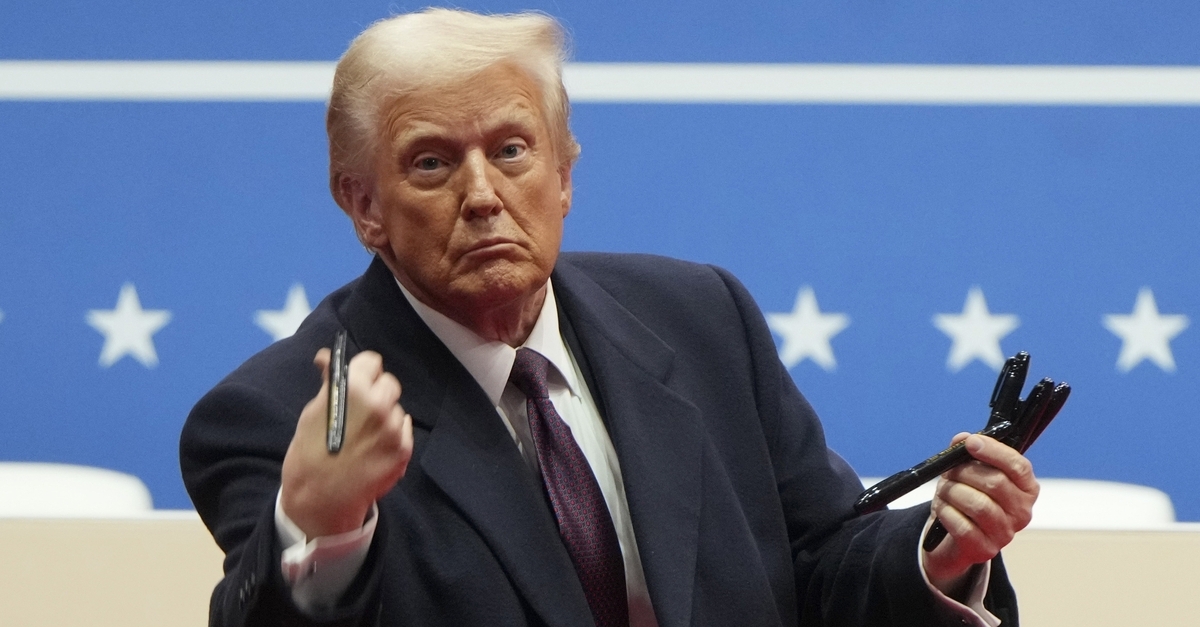A federal appeals court in California on Wednesday rejected the Trump administration’s request to allow the government to implement and enforce President Donald Trump’s executive order banning birthright citizenship.
A three-judge panel on the Ninth U.S. Circuit Court of Appeals declined an emergency motion from the administration seeking a partial stay of a lower court’s nationwide injunction on the measure, writing that the Justice Department had “not made a strong showing that [they are] likely to succeed on the merits” of the appeal. The panel ordered the case to remain on schedule with arguments slated to take place in June... Continue reading here ▶
The appeal came in response to Seattle-based U.S. District John Coughenour last week issuing a second nationwide injunction halting the citizenship ban in a case brought by Washington, Arizona, Illinois and Oregon. This injunction followed Coughenour’s issuance of a temporary restraining order issued in late January — the first court order to bar the policy.
“Citizenship by birth is an unequivocal Constitutional right,” the injunction reads. “It is one of the precious principles that makes the United States the great nation that it is. The President cannot change, limit, or qualify this Constitutional right via an executive order.”
U.S. Circuit Judge Danielle J. Forrest, who was appointed to the court by Trump during his first term, penned a concurring opinion defending the panel’s decision not to intervene. Forrest reasoned that the administration failed to show that it was entitled to emergency relief because there was no showing that “irreparable harm will occur immediately” without such relief, emphasizing that the executive order would drastically change the understanding of U.S. citizenship.
“Here, the Government has not shown that it is entitled to immediate relief,” she wrote. “Its sole basis for seeking emergency action from this court is that ‘[t]he district court has … stymied the implementation of an Executive Branch policy … nationwide for almost three weeks.’ That alone is insufficient. It is routine for both executive and legislative policies to be challenged in court, particularly where a new policy is a significant shift from prior understanding and practice.”
Forrest went on to point out that when the judiciary halts a policy advanced by another branch of government, it may be controversial, but “an emergency, not necessarily.”
“Nor do the circumstances themselves demonstrate an obvious emergency where it appears that the exception to birthright citizenship urged by the Government has never been recognized by the judiciary, and where executive-branch interpretations before the challenged executive order was issued were contrary,” she wrote.
The concurring opinion also addressed the palpable political implications at stake when courts make decisions on an expedited basis, warning that “quick decision-making risks eroding public confidence.”
“Judges are charged to reach their decisions apart from ideology or political preference. When we decide issues of significant public importance and political controversy hours after we finish reading the final brief, we should not be surprised if the public questions whether we are politicians in disguise,” she wrote. “Moving beyond wringing our hands and wishing things were different, one concrete thing we can do is decline to decide (or pre-decide) cases on an emergency basis when there is no emergency warranting a deviation from our normal deliberate practice.”
The appellate court’s ruling comes one day after Baltimore-based U.S. District Judge Deborah L. Boardman on Tuesday issued a five-page order denying Trump’s request for the “stay pending appeal” in which she asserted that the administration is likely to lose the case because the executive order in question seeks to “overrule the Constitution ‘by executive fiat.’”
Boardman, a Joe Biden appointee, reasoned that the nationwide injunction was “necessary because the Executive Order is a ‘categorical policy’ that addresses the citizenship status of people born anywhere in the United States.” Such enforcement would effectively create a tiered citizenship system in the U.S., if only temporarily.
“Were the Court to limit the injunction to the plaintiffs and the members of the plaintiff organizations, a person’s citizenship status during the pendency of this case would depend on their parents’ decision to bring this lawsuit or their parents’ membership in one of two voluntary, private organizations,” Boardman wrote. “That would make no sense. Citizenship rules should be uniform and consistent across the country. Uniformity and consistency can be ensured only through a nationwide injunction.”
The Trump administration is widely expected to appeal the case to the U.S. Supreme Court.
